A collection of podcasts dedicated to giving you quality entertainment in all things Nerd, Geek, and everything in-between. Go to thenerdparty.com for more!
Don't wanna be here? Send us removal request.
Text
Megalopolis - Film Review
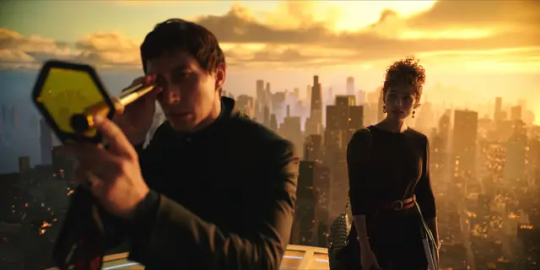
Written by Shawn Eastridge
Hoo, boy. This one’s a doozy.
Your appreciation of Francis Ford Coppola’s self-funded passion project, Megalopolis, will largely depend on how familiar you are with the film’s troubled history. One can’t help but be impressed by Coppola’s sheer gall and tireless devotion in getting this film to the big screen. Since the early eighties, he’d struggled to secure funding for his ambitious production. Despite having made three of cinema’s great masterpieces (The Godfather, The Godfather Part II, and Apocalypse Now), its massive scale demanded a sizable budget that no studio in their right mind dared commit to. Coppola pushed forward, undeterred by these setbacks, even going so far as to hold a table read for his script in the early 2000s, featuring the likes of Nicolas Cage, Leonardo DiCaprio, Robert De Niro and Uma Thurman.
Nothing came of it.
Then in 2021, Coppola sold his Sonoma County wineries, finally securing the $120 million he needed to produce Megalopolis and ensuring his vision would shine through without any studio meddling. And here we are, three years on from that sale and forty years on from Coppola’s earliest envisionings, with the final result.
Does anything about the above story inspire or excite you? Then Megalopolis may be worth checking out. But I’m not sure its appeal will extend beyond the realm of devoted cinephiles who understand the pain and turmoil that went hand-in-hand with its production. For the average, adventurous moviegoer, your overall enjoyment will more likely depend on your willingness to roll with the punches this ambitious mess throws your way. And believe me when I say, there are a lot of punches you’ll need to roll with if you want to get anything out of this.
I, for one, was happily along for the ride. Despite Megalopolis’ myriad issues–which include but are not limited to its nonsensical, overstuffed storytelling; its scattershot focus; its stretches of dull philosophizing–I found Megalopolis to be genuinely impressive. For Megalopolis is nothing if not impressive. Chalk it up to Coppola’s seemingly bottomless well of ideas, all of which have been thrown into the mix with the kitchen sink, and then some. Throw in some not-remotely-subtle references to the Roman empire (the film’s time-stopping main character is named Cesar Catilina, for crying out loud) for good measure, and you end up with a final product so wacky, I couldn’t help but be swept along by the entire effort.
It’s kind of like what would happen if you resurrected Fellini, introduced him to America’s current political landscape, and asked him to make a film about it, but also threw in an element of goofy “we’re all in this together as ONE HUMAN FAMILY” optimism that wouldn’t feel out of place in your standard Disney film. (Though now that Disney owns Marvel, Disney, and Fox, I’m not sure what exactly qualifies as a “standard” Disney film anymore. I’m not even sure Disney knows the answer to that one.) But the whole thing is so unabashed, so unrestrained, so unequivocally BONKERS, you have to appreciate it on some level.
Coppola is aided by Adam Driver’s supreme acting chops, which manage to turn the most absurd clunkers into passably respectable dialogue. Driver delivers a lead performance that contains a “go-for-broke” energy, imbuing Megalopolis with genuine humanity and emotion. Nathalie Emmanuel and Giancarlo Esposito are lovely, managing to do a whole lot with a whole little, Aubrey Plaza and Shia LaBeouf are having a ball, and Talia Shire manages to steal the only scenes in which she has anything to say. None of these performances, nor the film’s undeniably fantastic imagery, can make up for a narrative that simply cannot handle the weight of Coppola’s seemingly ceaseless musings, none of which are given the time needed to truly flourish. Plotlines and characters are introduced only to be forgotten on a whim. (Does Cesar’s ability to control time amount to anything outside of a cool visual gimmick?) I keep forgetting that certain, massive names, such as Laurence Fishburne and Dustin Hoffman, are even in the movie. Once all in Megalopolis is said and done, I’m not exactly sure what was actually said or done.
But look. These kinds of grand cinematic experiments simply aren’t made anymore–at least, not by anyone not named Christopher Nolan. Whether the film succeeds or fails at the box office is irrelevant. The true victory is that, after decades of struggle, one of the world’s greatest filmmakers finally got his passion project on the big screen. Its time there may be short-lived, but it happened nonetheless. You can’t help but root for him and his hilariously sweet and optimistic vision of the future.
And wait for Criterion to pick up the inevitable four and a half hour director’s cut.
FINAL RATING: 3/5
#film review#movies#movie review#film#review#the nerd party#movie#Megalopolis#francis ford coppola#adam driver#nathalie emmanuel#aubrey plaza#shia labeouf
1 note
·
View note
Text
Twisters film review
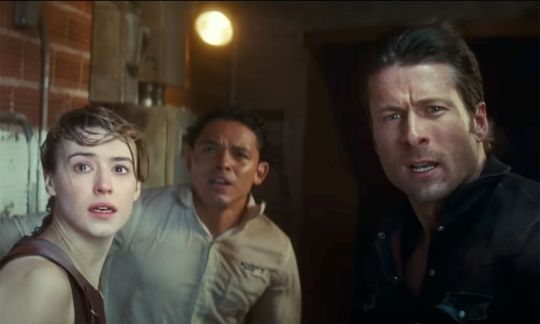
Written by Shawn Eastridge
Let’s get the important stuff out of the way first: between starring in Richard Linklater’s Everybody Wants Some with Tyler Hoechlin and now with David Corenswet in Twisters, Glen Powell has worked with TWO Supermen in the past decade. A true honor and privilege, and one I hope he doesn’t take for granted.
Am I the only one who’s paying attention to these things? Does this mean I have a Superman problem? Yes and yes? Great. Now that we’ve gotten that out of the way, on to the review!
Twisters is the latest in a batch of sequels that arrives at least two decades later than it should have. (I’m looking at you, Top Gun: Maverick–and don’t think I’ve forgotten about you, Beverly Hills Cop: Axel F.) Maybe I’m just out of the loop and the world has been clamoring for a sequel to the 1996 box office smash, but I have a sneaking suspicion that by the time we officially reached the 21st century, it wasn’t near the top of anyone’s cinematic wish list.
That said, when the Twisters trailer dropped during Super Bowl Sunday, I was more delighted than I’d ever expected to be. (I’m almost positive it had something to do with the added “s” at the end of its title.) That initial delight grew into genuine excitement when I learned the film was being helmed by Lee Isaac Chung, the writer and director of one of my favorite films from the past decade, Minari. (That 2020 release, nominated for six Oscars, including Best Picture and Best Director, was lost in the midst of the pandemic, and is well-worth seeking out if you missed it.) But how would Chung fair helming a multi-million dollar blockbuster sequel? Would his tendency towards low-key human drama be drowned out by the genre’s demands for rip-roaring special effects to appease the popcorn-munching masses? Would he truly put the “s” in “Twisters”??
If Top Gun: Maverick proved anything back in good ol’ 2022, it’s that you can have the best of both worlds: a sequel that not only goes above and beyond expectations but delivers an effort superior to its predecessor. Look, I get a kick from watching Twister as much as the next person. Its special effects still hold up, Bill Paxton and Helen Hunt are a charming duo, and it’s lovely to see a pre-Boogie Nights Philip Seymour Hoffman doing his best Bill and Ted impersonation. But it’s no masterpiece (disasterpiece?). There was always plenty of room for improvement and Twisters rises to the occasion with more thoughtful storytelling and better drawn characters and emotional conflicts. It’s not particularly nuanced, but its heart’s in the right place, and how often can you say that about your average modern day blockbuster? And while Twisters is no Top Gun: Maverick (for one, it doesn’t have the benefit of Tom Cruise insisting that they take on real tornadoes. Wait, how has no one pitched that movie?), when it comes to crowd-pleasing, heartfelt, pulse-pounder blockbusting, Chung and his amazing cast and crew manage to get the job done and then some.
Sure, Twisters’ characters and their relationships with one another are relatively simple and straightforward. Its screenplay, written by Mark L. Smith (The Revenant), based on a story by Joseph Kosinski (director of the aforementioned Top Gun: Maverick), hits just about every plot beat you’d expect. In fact, I’d go so far as to say there might not be a single genuinely surprising moment in this entire story. It’s likely your average moviegoer (a.k.a. Mom and Dad) could call the film’s plot beat for beat from the get-go. But that’s okay! Mom and Dad are allowed to get one right every so often! Chung and Smith aren’t out to revolutionize the genre. Twisters is more of a refinement of the disaster movie formula, and it improves upon its predecessor in nearly every respect.
Besides, whatever shortcomings are evident in the script are cushioned not only by Chung’s confident direction but a top-notch cast led by Daisy Edgar Jones (Normal People, Where the Crawdads Sing) and 2024’s go-to leading man Glen Powell (Top Gun: Maverick, Hit Man). These two are genuine superstars and manage to effortlessly carry this massive, multi-million dollar effort on their shoulders. Rounding them out is an excellent supporting cast, featuring Anthony Ramos (Hamilton, Transformers: Rise of the Beasts), Sasha Lane (American Honey), and Brandon Perea (Nope, The OA). There’s even what threatens to be a stock “along-for-the-ride” journalist character, whose portrayal by Harry Hadden-Paton (Downton Abbey, The Crown) is so sincere and genuine you end up loving him as much as the rest of the raucous crew. These performances are strong enough to elevate the material, grounding it in an emotional reality that might have collapsed in on itself in lesser hands. Kudos to Chung for never missing an opportunity to home in on these characters’ small emotions and character beats, humanizing the whole enterprise.
But what would Twisters be without its tornadoes? And you’ll be pleased to know Twisters’ action delivers, providing solid thrills that end up being more involving than your standard blockbuster. Working with seasoned cinematographer Dan Mindel (Star Trek ‘09, The Force Awakens) and top notch sound and VFX departments, Chung does an expert job of dropping the audience right smack-dab in the middle of nature’s gargantuan terrors. The thrills are more visceral and hard-hitting than the original. And yes, while this might have something to do with the massive improvements in special effects in the nearly 30 years since Twister was released, it also has a lot to do with Chung’s documentary-esque approach to capturing these sequences. It’s a MOVIE THEATER movie in the “go for broke” way you want it to be.
FINAL VERDICT:
Despite its plot contrivances and simplistic characterizations, Twisters has thrills and heart to boot. It’s simultaneously a throwback to the days of simpler, straightforward cinematic thrill rides and an exciting, forward-looking venture that suggests more on the cloudy-skied horizon. As for me, I’d follow Daisy Edgar Jones and Glen Powell into any tornado and I can’t wait to see David Corenswet switch gears and save people from tornadoes in James Gunn’s Superman next year. (And you thought I was going to conclude this review without referencing Superman. Oh, how little you know me.)
I award Twisters 3.5 flying cows out of 5.
#twisters#twister 1996#twister#film review#movie review#movie recommendation#cinema#film#movies#review#glen powell#daisy edgar jones#anthony ramos#david corenswet#superman
7 notes
·
View notes
Text
The Batman - Film Review

Written by Shawn Eastridge
MINOR SPOILERS WITHIN
I didn’t need another Batman movie. As far as I was concerned, Christopher Nolan’s trilogy was about as exhaustive and definitive a cinematic take on the Dark Knight as you could get. (And this is despite his spectacularly dropping the ball with ‘The Dark Knight Rises.’) But, because Warner Bros. likes to make all the moneys, I knew it was only a matter of time before the inevitable franchise reboot. I just couldn’t have cared less.
Until Matt Reeves entered the picture.
Reeves who, with his ‘Planet of the Apes’ sequels, had crafted two of the boldest, darkest blockbusters this side of Nolan’s trilogy. Those films, along with ‘Cloverfield’ and his shockingly great ‘Let the Right One In’ remake, had affirmed Reeves’ status as a filmmaking force to be reckoned with. His involvement gave me hope for the future of the Bat-Franchise. And while ‘The Batman’ might not offer up as fresh an interpretation or redefine this character in the same way Nolan’s films did, it is still an exciting take that offers a compelling angle on everyone’s favorite Caped Crusader.
Perhaps ‘The Batman’s’ greatest accomplishment is that it feels like a legitimate film, less a product of Warner Bros. franchise-building and more the result of a great filmmaker executing a specific vision. That feels like something of a minor miracle in this day and age of cookie-cutter blockbusters, and big kudos to Warner Bros. for giving Reeves the space to make the movie he wanted. Aided by Greig Fraiser’s rain-soaked cinematography, James Chinlund’s grimy production design, and Michael Giacchino’s haunting score, ‘The Batman’ feels more in line with a gritty detective thriller than your average superhero action flick.
That’s right, for the first time in his big-screen history, Batman really gets the chance to live up to that ‘World’s Greatest Detective’ moniker. This emphasis gives ‘The Batman’ a hardboiled, noir quality that, while evident in prior Bat-flicks, was always relegated to the very back of the line. Here, Reeves and co-writer Peter Craig have made it the central motif, world-weary voiceover narration and all. (I never knew how much I needed some Bat-narration in my life until this moment.) And while the pacing here is more considered than your standard blockbuster, or even past ‘Batman’ movies, there’s still plenty of solid action to behold. The fight choreography in particular is arguably the best this series has ever seen. (Nolan never did figure out how to craft a truly exciting fist fight.) There’s a visceral thrill in watching Batman take out a group of thugs, because, despite his superior strength and abilities, he still ends up taking quite a few punches.
It’s that bruised, human quality that makes Robert Pattinson’s turn as the legendary character so compelling. His Batman/Bruce Wayne is unhinged in a way we haven’t truly seen before. Unlike Nolan and Bale’s interpretation, which went to great lengths to define who Bruce was and what motivated him to dress like a bat and take down criminals, the Reeves/Pattinson collaboration has homed in on the notion that Bruce himself isn’t sure who he is or why he does what he does, other than a deeply-rooted need to vent his unbridled rage. There’s a disturbed, dangerous quality to this version and Pattinson manages to act the hell out of that John Connor haircut and eyeliner. (I can’t tell you how much I appreciate a Batman movie finally acknowledging his application of eye paint.)
And I love the way Reeves and Craig have weaved in the supporting cast of characters. As Catwoman, Zoe Kravitz is both vulnerable and fierce. It’s no wonder Battinson falls so hard for her - here’s someone whose personal suffering and acrobatic abilities mirror his own. True love in the making! I also love the relationship between Batman and Gordon (a perfectly cast Jeffrey Wright), the ‘us against them’ mentality and the way their friendship grows as they collaborate to solve the Riddler’s clues. An unrecognizable Colin Farrell plays the Penguin with such glee - he seems to be having the most fun of anyone here - and Paul Dano is absolutely horrifying as this Zodiac killer-inspired iteration of the Riddler. There is so much working in ‘The Batman’s’ favor, and at three hours, I never once felt the length.
So with all this praise, why didn’t I enjoy it more?
I guess it all comes down to the fact that all of this can’t help feeling a bit ‘been there, done that.’ Many of these same character beats have been explored in previous iterations, from Burton to Nolan. While Reeves’ take is compelling, it can’t help this ever-encroaching sense of familiarity. You’ve got the scene where the bad guy reminds the good guy that they’re ‘not so different’ after all; the conflicted love interest with a skewed sense of morality; Alfred’s insistence that Bruce needs to uphold ‘The Wayne Legacy’ (some of their exchanges feel pulled verbatim from ‘Batman Begins); yet another Batmobile chase; and so on and so forth.
And, look, while I am absolutely here for Pattinson’s disturbed, disconnected interpretation, his brooding Wayne is so emotionally distant, it nearly borders on self-parody. I mean, I love Nirvana as much as the next person, but I don’t know that I need scenes of him staring forlornly at his computer, journaling away while listening to their funereal ‘Something in the Way.’ It’s difficult to grasp what this Bruce Wayne actually cares about. Even his relationship with Alfred seems relatively estranged, but it’s barely touched on. (There’s an emotional beat between them near the film’s third act that doesn’t feel earned given the unfortunately small amount of screen time Andy Serkis’ Alfred has.) And we never get a true understanding of why Bruce chooses to dress like a bat and beat criminals to a pulp. It’s not that I need another origin story, (I really don’t) but it would have been nice to have at least a little more insight into who this person is and what drives him. He’s a bit one-note and stone faced. Even Bale’s Batman had something resembling a sense of humor.
ALSO…there’s a shameless, sequel-teasing beat near the film’s conclusion that is particularly grating and better-suited for Marvel’s Cinematic Universe than Reeves’ deadly serious interpretation. I know Reeves has explained in interviews that this scene doesn’t necessarily mean what we think it means, but it still feels silly in a way the rest of the movie never does.
All this said, I’ve only seen ‘The Batman’ once. There’s a good chance additional viewings might help balance my opinion without the weight of anticipation coloring it. While I’m not sure I’ll ever outright embrace this film in the same way I embraced Nolan’s ‘Begins’ or ‘The Dark Knight,’ that ‘The Batman’ manages to hold a candle to those entries at all is nothing short of impressive. I love this cast, I love the crew, and I love Reeves. The Batman’s future looks very bright indeed…if ‘bright’ can be used to describe anything about Batman.
FINAL RATING: 3.5/5
#batman#the batman#matt reeves#robert pattinson#paul dano#zoe kravitz#jeffrey wright#colin farrell#Film Review#movie review#2022#the riddler#catwoman#the penguin#dark knight
10 notes
·
View notes
Text
Feels Good Man Film Review - 2020 Atlanta Film Festival
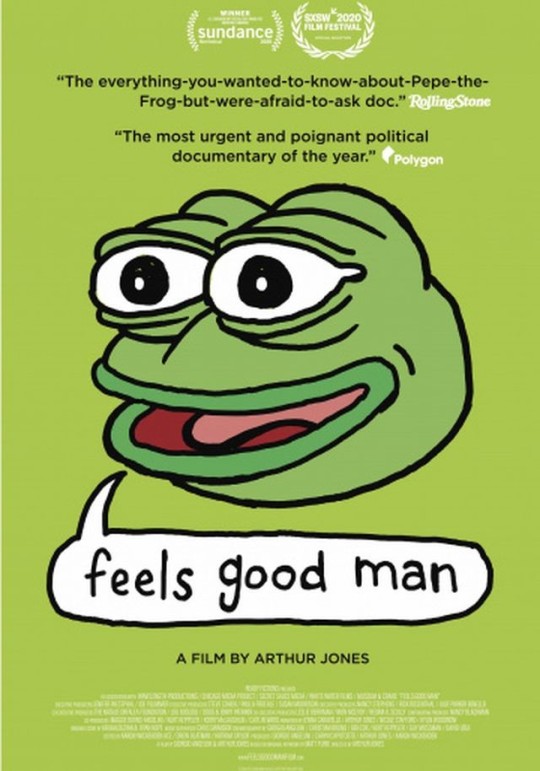
Written by Shawn Eastridge
Imagine you’re an artist, that you’ve created a character that is lovable and charming enough to garner a solid following. Your ambitions are small-scale: you just want to make people happy.
Now imagine something more sinister, that the occupants of the Internet’s darkest corners have hijacked your laidback, peace-loving creation and transformed it into a mascot for their intensely negative and harmful movement. Not only that, this movement’s growth becomes so widespread and so tied into your character’s image that the character’s reputation is irreparably harmed. Regardless of how nonchalant you are, I imagine this would have significant effects on your well-being and Feels Good Man examines this very issue.
Arthur Jones’ documentary takes on the subject of PePe the Frog, created in 2005 by Matt Furie for his comic book Boy’s Club. While the character was essentially an extension of Furie’s kindhearted, borderline hippie mentality, PePe was quickly hijacked by the infamous image board site 4Chan, and transformed into a mascot for the alt-right movement. The film details Furie’s struggles, his initial nonchalance regarding the issue and his eventual decision to fight back, going so far as to sue controversial right-wing talk host and conspiracy theorist Alex Jones.
There’s a lot of material to cover here. Beyond the story of Pepe’s creation and Furie’s growing anxieties and pain, Jones offers a disturbing glance into the darkest corners of the Internet and the meme culture that has had surprising and unexpected influence on the U.S. election process. While Jones never loses focus on his primary subject matter, his film ends up offering disturbing perspective on the way the Internet and Social Media has shaped the U.S. and its ideals, especially in lieu of President Trump’s election.
Despite the occasional delving into darkness, Feels Good Man breezes by. Furie is a genuinely lovable person, a caring husband and father. My heart went out to him as he struggled to comprehend, somewhat naively, how his innocent cartoon characters could have been transformed into such monstrosities. You can’t help rooting for Furie, hoping he’s able to save PePe’s reputation and pave the way for a positive message through his future illustrations and stories.
2 notes
·
View notes
Text
Cinema Pameer Film Review - 2020 Atlanta Film Festival
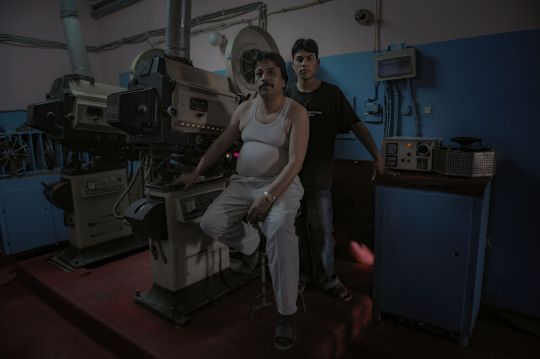
Written by Shawn Eastridge
As movie theaters face down the threat of a devastating global pandemic, along comes Cinema Pameer, a wonderful documentary that serves as a crucial reminder of why movie theaters are so important and the beauty that comes with the shared experience of watching movies with others. With his feature debut, filmmaker Martin Von Krogh has crafted a masterful examination of cinema’s power to help us transcend our surroundings, unite us and offer healing.
The documentary’s namesake is a movie theater located in downtown Kabul in Afghanistan. As the war torn city struggles to maintain some semblance of normalcy, the theater stands as a beacon for those citizens seeking to escape their brutal reality. Some in Kabul consider the cinema a degenerate pastime (to the extent that the theater manager hides what he does for a living from his own family), but those who work there firmly believe in the artform’s transformative power and importance, its ability to not only entertain but to convey crucial, inspiring messages and to change lives for the better.
Von Krogh has a keen eye, emphasizing humanizing details while expertly weaving in the stories of those who work at the theater. These employees couldn’t be more endearing, from the gruff ‘General,’ who doesn’t hesitate to slap around misbehaving patrons, to the soft-spoken projectionist who considers his role a dream come true. They are a lovable, eccentric group that has seen their fair share of horrific events. But they’ve also pushed through, doing their parts to ensure these movies are shown to the public, something they deem to be one of the worthiest of causes.
Cinema Pameer doesn’t shy away from the unspeakable atrocities that plague this society and its victims. There’s a particularly tense ride along in which two gentlemen drive to the country’s border in order to obtain films from Pakistan. On the way, they emphasize the risks involved, the grisly fates they’re likely to meet if they’re stopped by a rebel army or the Taliban. The suffering endured is further emphasized by personal accounts as some of the cinema’s employees reveal their brutal scars caused by unspeakable acts of terror.
While the reality of life in Kabul is never sugarcoated, Cinema Pameer’s message is ultimately hopeful. There is so much beauty to be found in these individuals and their stories. In one of the film’s most moving sequences, the theater’s manager Said recounts going to the movies as a young boy with a girl he liked. One senses that the experience transcended reality, becoming something holy and sacred. This, he seems to suggest, is the power of the cinema, and Cinema Pameer is that feeling epitomized.
To learn more about the Atlanta Film Festival, visit atlantafilmfestival.com.
1 note
·
View note
Text
John Lewis: Good Trouble - Film Review
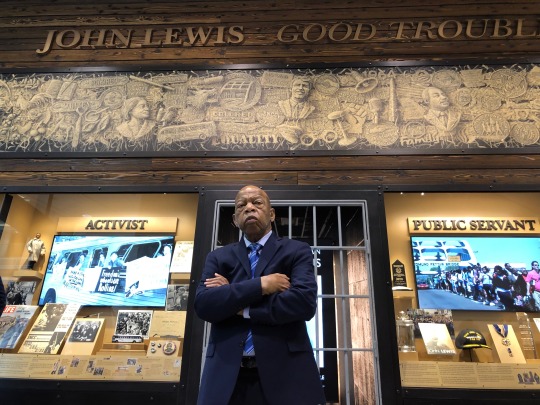
Written by Shawn Eastridge
“We’ve come so far. We’ve made so much progress. But as a nation, and as a people, we’re not quite there yet. We have miles to go.”
So begins Dawn Porter’s excellent new documentary ‘John Lewis: Good Trouble,’ which opens with a shot of Lewis speaking directly to the audience. It’s a scene Porter will return to throughout the film: Lewis, sitting on a stool, sharing his experiences. Behind him, a giant screen onto which Porter and her team project footage of Lewis as a young man. At one point, a visibly moved Lewis tells her, “Dawn, I’m seeing footage I’ve never seen before.” It’s this intimate moment, and others like it, that make this documentary so special, offering us a glimpse not only at Lewis the legend but Lewis the human being.
As a boy, Lewis passed his days preaching the Gospel to his chickens. (“They listened to me better than some members of the opposing side.”) In high school, he wore a tie and carried a Bible with him every day. By the time he’d reached college, his compassion for humanity and admiration for Dr. Martin Luther King Jr. led him to join the front lines of the Civil Rights Movement.
During the 1960s, Lewis helped organize peaceful sit-ins at restaurants in Nashville, Tennessee, eventually resulting in desegregation of lunch counters in the city. He worked from the mindset of Reverend James Lawson Jr.’s teachings about passive resistance. They were encouraged to ‘look their attackers in the eye,’ to feel nothing but compassion and love for those who hurt them. If they were struck in the face, perhaps this unbroken glance would give their offender pause. Perhaps in the absence of physical retaliation, their offender would recognize something human. One of the film’s most heartbreaking moments features one of Lewis’ Black peers involved in the movement reading a letter from his mother, scolding him and reminding him that it is the ‘white man’ that is responsible for his education. “What about the people of your race? What have they given you?” The boy tells a young Lewis, “I mean, I know she cares for me...I know she loves me. But, man, she just don’t understand.”
By the age of 23, Lewis was recognized as one of the ‘Big Six’ leaders of the Movement, which included Roy Wilkins, James Farmer and Dr. King. He was the youngest speaker at the March on Washington for Jobs and Freedom, and is the only one still alive today. His 60-plus years as a social activist and a legislator has seen him fight not only for civil rights, but for voting rights, common sense gun laws and healthcare reform. In his lifetime, he has been arrested nearly 50 times (the elder Lewis jokes he’ll probably get arrested again for something or other), brutally beaten, mocked and castigated. “I lost all sense of fear,” he tells us. And through it all, he’s persevered, stacking up a list of accomplishments that is nothing short of inspiring.
This is all to say there’s a lot of ground to cover over the course of a 100-minute runtime. Somehow, miraculously, Porter pulls it off. Not only does Porter’s documentary shine a light on Lewis’ life, detailing his extensive list of accomplishments as both an activist and a congressman, it serves as a powerful reminder that there’s still plenty of work left to do. ‘Good Trouble’s’ overarching message aligns itself with Lewis’ impassioned, lifelong battle: the right for all American citizens to vote must be cherished and protected at all costs. This is the very heart of our democracy, and it must be preserved. (The film’s release over 4th of July weekend of an election year couldn’t be more timely.)
The remarkable footage of Lewis as a young man during the Civil Rights Movement is intercut with the present day struggles revolving around the right to vote in America and the disturbing evidence of voter suppression that still remains. There’s a wealth of footage featuring Lewis as he makes the rounds across the country during the 2018 midterm elections. One of the most charming sequences showcases Lewis watching the election play out, cheering on his favorite candidates like you’d cheer on your favorite athlete. He calls them and congratulates them, only just managing to keep his excitement at bay.
There are extended sequences in which Lewis encounters random citizens while out and about. He seems delighted to meet with each and every one of them, and these moments account for some of the film’s most touching. Another highlight features Lewis’ Chief of Staff, Michael Collins, sharing the story of how Collins’ father’s funeral was on the same day as the reauthorization of the Voting Rights Act. Lewis attended the funeral. It’s further proof on a more intimate scale that through the years Lewis has remained a deeply compassionate and caring human being. The friendship and deep love between these two men also provides some of the biggest laughs. Collins teases Lewis for all the lipstick on his face, the result of numerous women greeting and kissing him. “I didn’t ask them to kiss me,” Lewis retorts. Lewis returns the good-natured ribbing in kind. As Collins helps Lewis up a large flight of stairs, Lewis pretends to trip and lose his balance. “Don’t let me fall!” he jokes.
And naturally we get mention of Lewis’ viral video dancing to Pharrell Williams’ smash hit single ‘Happy.’ It’s these smaller, humanizing moments that make this documentary so special.
At times, the truncated running length works against the film. Because the film focuses so exclusively on Lewis’ political activism and his work as a congressman, we lose some of the details of his personal life. This is especially clear in the film’s final third. I wish I could have learned more about his late wife Lillian Miles Lewis, and their son John Miles. Likewise, the details regarding Lewis’ intense and bitter run-off election against his long-time friend Georgia State Rep. Julian Bond in 1986 are skimmed over. But I want to emphasize that these are minor complaints. I can’t imagine the struggle to condense such an accomplished man’s life and career into a digestible, 100-minute runtime. Porter’s documentary succeeds in providing an overarching look at Lewis’ incredible life, and there are plenty of great materials out there to supplement this wonderful effort. The film has a limited opening this weekend across the country and will be available via streaming services. Don’t miss it.
Oh, yeah, and make sure to vote.
And on that note, I leave you with Congressman Lewis dancing to Pharrell Williams’ ‘Happy.’
youtube
26 notes
·
View notes
Text
REVIEW: Superman Smashes the Klan by Gene Luen Yang

Like many of us, I grew up on Superman. He was the paragon of virtue that all of us were to aspire. My first introduction was the old serial cartoons made in the 1940s. My dad bought me a VHS copy in the early 90s at a garage sale. I watched it repeatedly because it was simple: Superman is good and right and true; he overcomes the bad guys with his might. Rinse and repeat every nine minutes. Mechanical monsters, evil super-geniuses, arctic giants, and volcanos-- these were his enemies as far as I was concerned. It never occurred to me that Superman needed to fight hate and racism, but he did.
In 1946, "The Adventures of Superman," a popular radio show that aired from 1940 to 1951, took on the Klan. During the years of World War II, the show often had Superman battle and overcome the Nazis. It was easy to write with great payoff because America wanted to beat the Axis. However, with the Allies winning and the Nazis defeated, it didn't make sense for Superman to continue fighting them. The producers of the show were looking for a new villain, and Klan activity was on the rise in the northern United States. According to who you talk to, it was several people's idea to have the show go after the Klan, but what's important is that it happened and they had the courage and support to do it. "Clan of the Fiery Cross" was born as a stand-in for the Klu Klux Klan for legal purposes. We need to remember that the KKK, then as it is today, is litigious and organized with dues, budgets, and marketing campaigns. Superman took on the "Clan" and punched racism in the face. While thinly veiled, it worked, and ratings skyrocketed while Klan leaders denounced the show.
Fast-forward to 2019: "Superman Smashes the Klan," written by Gene Luen Yang with art by Gurihiru, is released as a three-part serial and is loosely based on the aforementioned radio show. Set in 1946, a Chinese-American family moves to the suburbs of Metropolis and out of Chinatown. The Lees are not welcome by all, and some are so disturbed by them moving in that a flaming cross appears on their front lawn. The focus of the story is on the two Lee children, Tommy and Roberta. Tommy is a gifted athlete who quickly usurps the mantle of starting pitcher on the community center baseball team. The former starting pitcher's uncle is the "Grand Scorpion" of Metropolis' local Klan chapter. Yang shows an interesting dichotomy with the uncle because when his nephew talks about being replaced, he essentially tells him to take it in stride and do better next time. That is until he hears the name "Lee." His entire mood changes, and he practically goes for his robes right there. I'm pointing to this moment because we often hear, "well, he's always been nice to me." It's a familiar character defense that comes up regularly when somebody accuses another of racism, sexism, or xenophobia. Yang lifts the veil of this defense as well as sheds light on the duality of racism. This theme is done deftly and sometimes overtly throughout the story. You can forgive the use of overt themes in place of subtly once you understand the history of this story and from what it was adapted.
The art is done in a playful way to showcase how different this is from the modern tellings of Superman of this current decade. It also achieves that shiny veneer and idyllic view of the past that so many of us have but also reveals how Camelot was a lie for people who looked different than Superman or me. Setting the story in Gotham, the reader wouldn't feel like it was that much of a stretch to see police corruption, systemic racism, casual xenophobia, etc. But Metropolis is the shining city upon a hill (even with death rays). Certain characters even voice their disbelief in the kind of activities that take place, including our favorite veteran paperman Perry White.
While Superman swooping in to save the Lee family from drowning, bombs and Klan activity is the main plot; the b-plot is Supes dealing with his own identity and the development of his powers. Superman can only leap, and his eyes only see. The comic goes out of its way to remind us of the early history of his character and limited abilities. These two stories are fantastic on their own, but at times they feel clumsy when smashed together. Going back and forth, you keep wondering whether this is a story about an immigrant family struggling with the Klan with the help of Superman or a Superman story struggling with his parentage while punching the Klan. The connections between the two stories of self-identity and immigration are tenuous at best, that is until the end. Yang does stick the landing when Superman accepts he's an alien and an immigrant and proudly reveals it to the world. Superman's revelation mirrors Roberta Lee's journey and the acceptance of her issues as well as her birth name.
Overall, this is an entertaining read with a pertinent message and, sadly, still a timely one, but it can either give you a glimpse of your past or small window into one you've never experienced. If you do read it, I recommend you make sure to read the epilogue written by Yang. It gives a brief history of the plight of Chinese-Americans, Klan activity, and his own experiences growing up. It is just as interesting as the Superman story the proceeds it and, in my opinion, should have been the prologue. It gives much more depth and understanding to the reader.
Tristan Riddell
Co-Founder and Publisher
TheNerdParty.com
4 notes
·
View notes
Text
The Nerd Party’s Top Ten Films of the Decade
To celebrate the end of the decade, the members of The Nerd Party were asked to select their favorite films from 2010-2019. The votes have been counted and verified and here are the results:
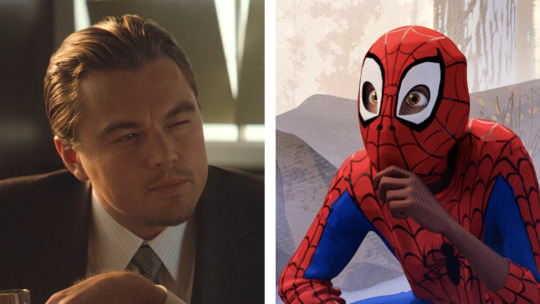
10. Inception (2010) / Spider-Man: Into The Spider-Verse (2018)
It was a tie for tenth place with Christopher Nolan’s decade-defining blockbuster (everyone was using that Inception horn in their trailers) and The Nerd Party’s top Film of 2018: Into The Spider-Verse.

9. The Social Network (2010)
When it was announced that David Fincher was going to direct a movie about Facebook, the internet scoffed. The end result turned out to be one of the most important and defining films of the decade that has even more punch today.
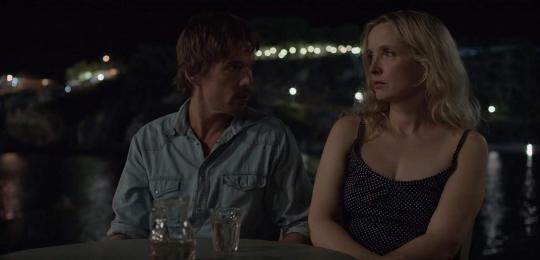
8. Before Midnight (2013)
The final entry to an incredible trilogy turned out not to be Rise Of Skywalker but Richard Linklater’s conclusion to the Before Trilogy. But is it really the end? We’ll find out in 2023.

7. Under the Skin (2014)
The highest-rated A24 film on the list, Scarlett Johansson was a world away from the MCU as she drove around Glasgow in a white transit van picking up men for mysterious and nefarious purposes in this unique science fiction film.
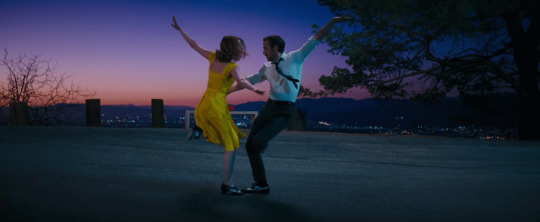
6. La La Land (2017)
The best original musical of the last ten years (sorry The Greatest Showman), it cemented Damian Chazelle’s position as one of Hollywood’s hottest directors and was responsible for the most infamous moment of the decade when it lost the Best Picture Oscar to Moonlight...
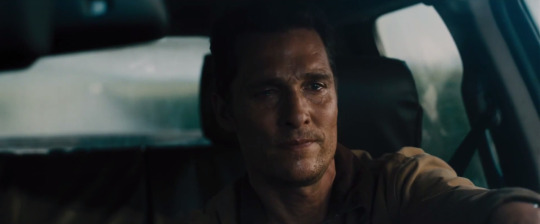
5. Interstellar (2014)
Christopher Nolan is the only director to have two films on this list with his highest entry being his science-fiction epic that rode the crest of the wave of the McConnaisance.
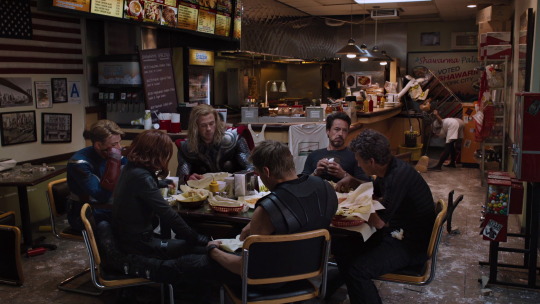
4. The Avengers (2012)
Despite dominating the box office charts for the entire decade, the only entry from the Marvel Cinematic Universe to make it onto our list was this original team-up movie that made way for the most successful movie of all time.
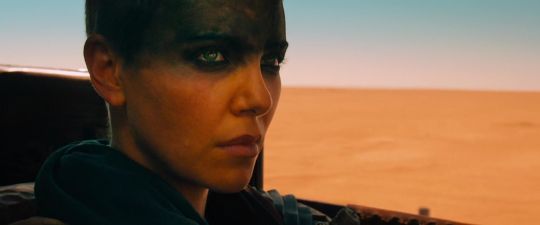
3. Mad Max: Fury Road
Arguably the best pure action film of the last ten years. Well, certainly in the minds of The Nerd Party, as it was the film which featured on the most lists across the group.

2. Skyfall (2012)
The high point of Daniel Craig’s run as Bond… until No Time to Die at least. It was referential to the franchise but also delivered in terms of action and spectacle. Plus, an absolute banger of a theme song from Adele.

1. Blade Runner 2049 (2017)
Well, who would have thought that a sequel that no one was screaming out for, to a 35-year-old science-fiction film that flopped at the box office would take the top spot on The Nerd Party’s list? BR2049 was simply a stunning piece of filmmaking that built on Ridley Scott’s original world and left us wanting more. And it finally bagged Roger Deakins an overdue Oscar for cinematography!
Make sure to listen to the 200th episode of The Nerd Party’s show Filibuster and hear the hosts Dallas, Kim, and Lee discuss the above list, their own personal lists, as well as review Star Wars: The Rise of Skywalker.
https://bit.ly/2svTJEB Apple Podcasts http://bit.ly/1pd658o Spotify https://spoti.fi/2LUJvFd
Edited and compiled by Dallas King
#Blade Runner#Blade Runner 2049#Under the Skin#Avengers#Best of#movies#film#inception#Spider-Man#Into the Spiderverse#James bond#bond#Skyfall#Iron Man#captain america#Scarlett Johansson#Mad Max#Mad Max Fury Road#Interstellar#Christopher Nolan#La La Land#Before Midnight#The Social Network#David Fincher
3 notes
·
View notes
Text
63 Up - Film Review

Written by Shawn Eastridge
In 1964, a 30-minute documentary entitled ‘7 Up’ premiered on British television. It gathered fourteen children from different social classes, educations and locations and sought to determine how their upbringings might dictate their futures. It was intended as a one-off special, with no larger aspirations or goals in mind. All of that changed when, seven years later, filmmaker Michael Apted, who had served as a researcher on ‘7 Up,’ decided to pick up the directing reins with ‘7 Plus Seven.’ This ‘sequel’ found these fourteen individuals in their early teens. Apted has since followed up with them every seven years, charting their high points, their low points, their hopes, their fears, their successes and their failures. Miraculously, most of the individuals have stuck with the program, and now, half a century later, they’ve returned for the series’ ninth, and perhaps final, entry ‘63 Up.’ (My local Atlanta peeps can check it out at Landmark’s Midtown Art Cinema this weekend.)
Each new film in this series enriches the preceding one to the point where I’d argue you could jump right into it with ‘63 Up’ and get an excellent picture of the entire project. Apted and his team expertly interweave footage from past films, enriching each individual’s story with supporting, and sometimes contrasting, comments from their past selves. Now reaching their early 60s, we find the group contending with their mortality head-on. There are health concerns, quiet reflections and, for the first time, one of the original fourteen members has passed away.
But even as it deals in occasionally melancholic subject matter, ‘63 Up’ is a joyous viewing experience, a celebration of life and all the little quirks and complexities that come with it. The thrill is in seeing how each of these people has taken on life’s challenges and emerged on the other side with as much hope and dignity as is possible given their unique circumstances. It’s amazing how clear some of these individuals’ journeys were from the get-go. You have Tony, who started out as rambunctious, energetic 7-year-old, and has maintained the same zest and enthusiasm throughout his life, even despite the hardships he and his family have faced. Or Bruce, who has maintained the same quiet, thoughtful demeanor he displayed in ‘7 Up,’ and has settled nicely into the role of husband and father.
Others in the group have changed in dramatic ways. Neil started off as an adorable 7-year-old who wanted to be an astronaut. Once he hit his early 20s however, he was out of school, homeless and filled with bitter resentment. Over the course of the past couple decades, he managed to bounce back, embracing a career in both politics and the church. While his mental health issues have persisted, he’s found solace in his Christian faith. You also have Nick, who grew up on a small farm and ended up pursuing a career as a nuclear physicist before settling into a role as a professor at the University of Wisconsin-Madison. While usually enthusiastic and talkative, this latest entry finds him in a contemplative mood, contending not only with his father’s recent death, but his own personal health issues.
What’s nearly as fascinating is the way this series has subconsciously served as a document of Apted himself. Though he never physically appears in the films, his presence is always felt, either through his interview questions or his narrating the proceedings. One of the subjects, Jackie, took Apted to task in a previous entry for his admittedly sexist approach to questioning her and her friends Lynn and Sue about their relationships and marriage in earlier entries. It’s clear Apted took the criticisms to heart and has offered ample opportunity for Jackie and the others to air their grievances. Just like his subjects, Apted has continued to grow and develop as both a filmmaker and a human being. (It’s also important to note that despite the offense taken, Jackie also admits that she’s loved being a part of the series and hasn’t regretted her involvement one bit.)
Taken as a whole, the ‘Up Series’ is a powerful reminder of how quickly life moves. Before you know it, you’re looking back on the whole thing. As Tony tells Apted early on, ‘...it just flew by...’ You could call the lives of certain individuals ‘mundane’ or ‘ordinary,’ but I believe that’s missing the point of this project. That these people have lived their lives more or less on their terms (with some notable exceptions) is extraordinary. Some may have regrets; some may have struggles and some might have passed on, but the legacy they leave is one to be proud of. If ‘63 Up’ truly is this series’ final entry, it’s a worthy capstone to one of cinema’s greatest achievements.
#63 Up#Up Series#Michael Apted#film#documentary#review#The Nerd Party#Shawn Eastridge#Missing Frames#Shawndorman
1 note
·
View note
Text
Marriage Story - Film Review
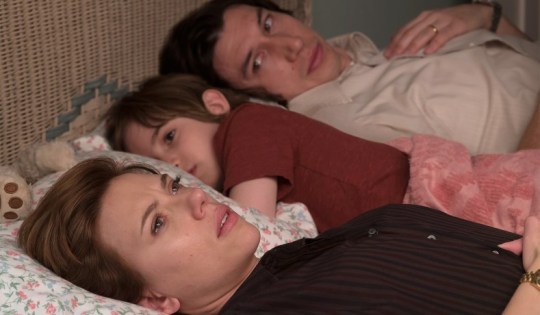
Written by Shawn Eastridge
In his 2005 film ‘The Squid and the Whale,’ writer/director Noah Baumbach offered an examination of divorce through the kids’ perspective. Now, nearly 15 years later, and having experienced his own divorce, Baumbach offers up a new, first-hand take with ‘Marriage Story.’ His latest effort is just as authentic and raw as 'The Squid and the Whale,’ but benefits from Baumbach’s maturation as a filmmaker. The final result is nothing short of magnificent, serving not only as a showcase for Baumbach’s talents, but the talents of its two leads Adam Driver and Scarlett Johansson.
Charlie (Driver) is the head of his own theater company located in New York City. He has directed his wife Nicole (Johansson) in many productions over the past few years and their creative collaboration has brought the company great success. As demonstrated in the film’s opening montage, there’s clear love and affection between the couple. However, Charlie’s needs have superseded Nicole’s for far too long, and when Nicole catches wind of an incredible acting opportunity in Los Angeles, she leaps at the chance, taking their son Henry with her.
The timing proves fatal to Nicole and Charlie’s already estranged marriage. Despite their initial decision to have an amicable split, Nicole gets in touch with a hotshot family lawyer (Laura Dern) who convinces Nicole that divorce is the right course of action.
And it all goes great and no one’s feelings are hurt. Hooray!!
Or, yeah, maybe not.
‘Marriage Story’ doesn’t pull its punches. Its unflinching portrayal of the many ups and downs (er...mostly downs) of divorce results in sequences so raw and authentic there were times I felt I should excuse myself from the room. But despite the painful subject matter, Baumbach imbues his work with a great deal of optimism, empathy and humor. He recognizes marriage’s many complexities, that applying simplistic terms like ‘love’ or ‘hate’ simply don’t do the emotions justice. Charlie and Nicole might harbor bitter resentment towards one another, but there’s clear affection between them. Though their split might have been inevitable, their love for one another remains.
Driver and Johansson give themselves completely over to the material, baring their souls and emotions in truly remarkable fashion. These are the kind of performances that remind you just how powerful and affecting the craft can be. Baumbach does an excellent job fleshing out Charlie and Nicole’s little quirks and character details, but the way Driver and Johansson bring these people to life is nothing short of astonishing. I found myself rooting for both characters, even in the more painful scenes when their sole motivations seem to be hurting one another. It’s tough to pick a side, even if you want to. Most likely, this was Baumbach’s intention all along.
Even though ‘Marriage Story’ can be devastating, it offers up plenty of hope too. Love might be complicated and it might have its lows, but there are also many highs. Sometimes it’s a quiet exchange, a kind word, the willingness to support your partner even when it’s no longer required. In the midst of all the legal proceedings, Nicole recognizes Charlie’s need for a haircut, something she always used to do for him, and she offers to give him one. It’s one of the film’s most touching scenes and it’s to Baumbach’s credit that he fills the film with moments like this. ‘Marriage Story’ is an incredibly generous film, arguably Baumbach’s most generous, and one of 2019’s absolute best.
#Marriage Story#Adam Driver#Scarlett Johansson#Noah Baumbach#2019#film#film review#movie#movie review#Shawndorman#Shawn Eastridge
0 notes
Text
The Lighthouse - Film Review

Written by Shawn Eastridge
Robert Pattinson and Willem Dafoe starring in a film written and directed by the man behind one of the best horror flicks of the decade? Yes, yes, a million times yes. The Lighthouse is Robert Eggers’ superb follow-up to 2016’s The Witch. It’s more ambitious in both its scope and subject matter, and while it might not be as concise as his previous effort, it is still well-worth your time.
Pattinson plays Ephraim Winslow, a young man serving a four-week contract as a lighthouse keeper. He serves under Dafoe’s grizzly, seasoned Thomas Wake. The pair is isolated on a dreary island under a persistent gray sky. Slowly but surely, Winslow’s sanity creeps away from him. He has strange dreams about mermaids and disembodied tentacles, and develops an antagonistic relationship with the island’s seagull population. What happens to these guys makes for about as unconventional and original a cinematic expression as you’re likely to see in theaters this year.
There are long stretches in which not much seems to be happening, but even in these slower moments, The Lighthouse manages to captivate. Eggers’ methodical direction works hand-in-hand with Jarin Blaschke’s stunning black and white cinematography to create a stark, dreamlike environment. The images they craft are evocative and unforgettable, evoking a sense of haunting fairy tale unreality. The Lighthouse contains countless images that are hauntingly beautiful. Every frame captivates. The 1.19:1 aspect ratio contributes to the uneasy mood, the sense of claustrophobia and impending doom.
That Eggers (who co-wrote this screenplay with his brother Max) never explicitly states what’s real and what isn’t only works in the film’s favor. Clearly his material is steeped in all kinds of lore, specifically Greek fables, but with some notable exceptions, these allusions are more subtextual. This works in the film’s favor, as any explicit statements or references would work against the material. The sense of disorientation, the hallucinatory quality this evokes, puts the viewer right smack in the middle of its main characters’ disturbed mindsets. Is any of this really happening, or is it all taking place in our characters’ heads? Eggers never fully provides the answers, and as far as I’m concerned, that’s far more satisfying than if he’d had.
But while Eggers and co.’s cinematic technique is undoubtedly impressive, it’s Pattinson and Dafoe’s performances that keep us invested. Their madcap, zany and downright disturbing takes on these two lighthouse keepers slowly descending into madness are horrifying and, occasionally, downright hysterical. The duo drinks, dances, sings and farts (amongst other things) through every scene with utter devotion to their craft. Their humanity slowly but surely dissipates until everything explodes in a fit of violence and confusion. You might say Pattinson and Dafoe anchor the film in something resembling reality and genuine feeling; truth be told, they’re just as insane as everything else in this movie, and I love it.
Make no mistake, The Lighthouse is not easy viewing. It’s harsh, creepy and frequently unsettling. It’s also masterfully made, engaging and totally nuts. If you’re a cautious viewer, tread carefully, but if you’re ready for all the insanity Eggers, Pattinson and Dafoe have to offer, then have at it.
#The Lighthouse#Robert Pattinson#Willem Dafoe#Robert Eggers#The Witch#horror#films#movies#2019#The Nerd Party#Shawn Eastridge#Shawndorman#Missing Frames
1 note
·
View note
Text
It: Chapter Two - Film Review

Written by Shawn Eastridge It: Chapter Two demonstrates how little director Andy Muschietti had left in his bag of tricks following the first film. It’s got all the same problems as its predecessor - lame, repetitive scares and an overreliance on computer-generated trickery. Add to the mix a frantic, unfocused storyline, which never manages to find its way and an unnecessarily long running length and you’ve got a film that never manages to live up to the charms of its predecessor. It’s a tonal mess, leapfrogging horror for comedy at nearly every and plays plays out many of the same beats as the first film, but without the benefit of that film’s pre-teen cast and their energetic chemistry.
As I mentioned in my review of the first film, It is my favorite of Stephen King’s novels. While it’s typically labeled as nothing more than ‘the one with the creepy clown,’ people neglect to mention it’s also a genuinely affecting and thoughtful coming-of-age tale. Aside from King’s standard unforgettable scares and terrifying imagery, his story said something profound about the nature of growing up, the importance of friendship and the bittersweetness of leaving your childhood behind.
There’s an overabundance of narrative and thematic ground to cover in this 1,100+ page tome. While the novel intercuts the grown-up Losers’ story with that of their childhood counterparts’, Muschietti and company opted to split the adult’s portion and the kids’ portion into two separate entities. On paper it seems like a smart idea, but the reality proves otherwise. In King’s novel, the intercutting format allows the reader to rediscover the adult Losers’ childhood memories as the characters’ do. When the two stories are split in two, all it accomplishes is further re-emphasizing information we already know, drawing attention to the repetitive nature of the story. We know how things will play out because we’ve already seen the entire story in the first film and this robs It: Chapter Two of much of its potential for suspense and mystery.
Somehow three hours feels both too long and not long enough. The first hour’s chaotic pacing and editing finds It: Chapter Two’s screenplay struggling to discover its way. I don’t envy Gary Dauberman, the sequel’s sole screenwriter. He’s tasked with re-introducing no less than seven characters, catching us up with their adult iterations and sending them back to Derry for a showdown with an evil clown. The sheer amount of information thrown at viewers makes it difficult to register the reunion between these characters. We’re supposed to believe these are the same life-long friends we’ve come to know and love, but because we’ve spent so little time learning who they are in the present day, it doesn’t feel like we know them at all. Whereas the source material frames the battle between the Losers and Pennywise as an epic showdown between the forces of good and evil, the film version portrays it as little more than ‘group of kids fights scary monster.’ There’s no sense of the greater stakes and it makes the battle at the center of both these films feel insignificant.
The film never recovers from the disconnect between the adult Losers and their younger counterparts. While the ensemble is strong, made up of the likes of James McAvoy, Jessica Chastain and Bill Hader, there’s little chemistry between them. Hader, as has already been stated, is the highlight here. His youthful performance brings the energy and humanity It: Chapter Two sorely needs. His interactions with James Ransone’s Eddie provide many of the film’s best moments.
The remaining cast members, while giving solid takes, are surprisingly stiff and awkward. McAvoy never seems comfortable in the role of Bill Denborough and it doesn’t help that his and Chastain’s ‘romance’ feels shoehorned in. The lack of chemistry between the adult versions of these characters holds It: Chapter Two back from hitting its emotional beats. Every time the film flashes back to the Losers as kids, it reminded me just how well the young ensemble worked as a unit and how much the first film benefited from their involvement. Their presence is sorely missed this time around.
And then there’s Bill Skarsgard as Pennywise the clown. It’s as if Muschetti didn’t trust that Skarsgard’s take would be frightening enough. At nearly every opportunity, the performance is amplified by hokey computer-generated effects that diminish the work Skarsgard is doing. Maybe it’s just the reality of the situation: the more you see of Pennywise, the less scary he is. Seeing as how we’ve already seen an awful lot of him in the last film and nearly three hours worth of him in this one, it’s no wonder Muschetti struggled to make it work. But the addition of morphing, CGI faces don’t help the cause and, in fact, take away from Skarsgard’s effectiveness in the role.
Just as ineffective are the goofy, computer-generated monstrosities that pop out of every which corner to terrify our heroes. There are a few genuinely effective scares, such as when Jessica Chastain’s Beverly pays a visit to her childhood home, or a scene in which Pennywise lures a young girl to her demise under the bleachers during a sporting event. The film’s final act also features a number of inventive sequences that give it a much needed jolt. For the most part though, the scares play out in exactly the same way: a disembodied voice lures one of our heroes off to a dark, secluded area where a monster is waiting to pop out and provide the obligatory jump scare. This happens to every single one of the main characters, and it plays out in nearly the exact same way every time. Any potential for terror is diminished by the repetitiveness. It ends up being annoying more than anything else.
Sadly, It: Chapter Two feels like an obligatory comedown from the unexpected high of the first film, almost as if the filmmakers themselves weren’t sure how to live up to expectations and decided to scrap the whole attempt. Ultimately this adaptation fails because it lacks the emotional nuance and sense of stakes established in Stephen King’s novel. By honing in on cheap scares and cramming in unnecessary subplots, Muscheitti loses the essential heart of the story. His ambitions are admirable, but the final product sinks rather than floats.
FINAL RATING: 2 out of 5
#it#it chapter two#it chapter 2#stephen king#pennywise#bill hader#jessica chastain#james mcavoy#horror#Film Review#movie review
6 notes
·
View notes
Text
Spider-Man: Far From Home - Film Review
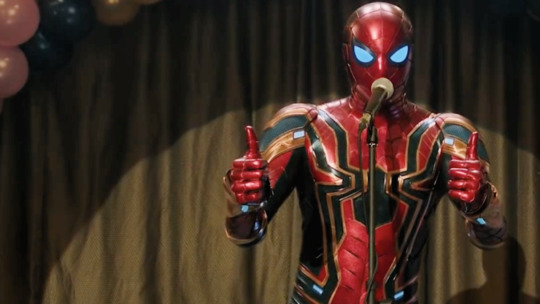
Written by Shawn Eastridge
I never thought I’d ever say this, but I’m starting to think Spider-Man might be too good for Marvel’s Cinematic Universe. No. Scratch that. I know he is. And Far From Home, the latest entry in this franchise, proves it once and for all.
I was willing to give Spider-Man: Homecoming a pass. Despite being relatively shallow, it’s light on its feet, has a great villain in Michael Keaton’s Vulture and contains a strong emotional beat for Spidey near the film’s climax. Far From Home has none of this. In fact, Far From Home is one of the blandest entries Marvel Studios has yet released. Instead of seeking out opportunities to deepen Peter Parker’s character, Marvel Studios has relegated him to cleaning up the mess Avengers: Endgame left behind. When a Spider-Man film makes you long for the emotional depth of Spider-Man 3, you know there’s a problem.
Following the shenanigans of Infinity War and Endgame, Peter is understandably ready for a vacation. His upcoming summer class trip is the perfect opportunity to do so. Not only will he and his best bud Ned get to take in a number of scenic European views, but Peter will get a chance to spend quality time with his crush MJ. And maybe, just maybe, he’ll finally get the chance to tell her how he feels. Peter even goes so far as to leave his Spider suit behind, determined to enjoy this time off to the fullest.
Naturally, things don’t work out that way. Before long, Nick Fury arrives to pull Peter off of the sidelines and back into the superhero-ing world. Quentin Beck, a superhero claiming to be from another dimension, has arrived in the midst of a number of Elemental monster attacks. These Elementals, comprising of - you guessed it - water, fire and earth, destroyed Beck’s Earth. Beck is now determined to protect Peter’s Earth at all costs, but he and Fury will need Peter’s help to do so. That is, if Peter is up for the task.
Right from the get-go, Far From Home casually dismisses Endgame’s dramatic heft in favor of a quick laugh. While I understand the need to establish a different tone from Endgame, the offhand way Far From Home makes light of Endgame’s superb conclusion further emphasizes how little director Jon Watts and this creative team cares about making anything that happens here feel significant in any way. At every turn, Far From Home attempts to distract the audience from its glaring insignificance by going the route of comedy. Every action sequence is punctuated by some half-assed punchline or an overriding sense of artificiality - Flash Thompson live-blogging on his phone; the teachers making some kooky comments about how they’re all going to die. There’s no sense of danger. No suspense. No stakes. None of it feels remotely believable.
To be fair, the emphasis on humor is a common complaint lobbied at the MCU. Here’s the thing, though: while humor plays a large role in these films, the humor enriches the already present emotional stakes and characters. For the most part, we’re laughing with our heroes, not at them. (Thor: Ragnarok is the argument to the contrary, but the big difference between that film and this one is that Thor: Ragnarok is actually funny.) Far From Home can’t seem to differentiate between those two things. Maybe it wouldn’t have been so bad if the jokes didn’t feel so forced and awkward.
And, hey, speaking of forced and awkward, how ‘bout those action sequences? With the exception of one genuinely impressive Mysterio-inspired acid trip, every action scene feels lackluster and uninspired. It’s like the studio handed director Jon Watts a shot list and storyboards without taking any input from him. “All you need to do is show up on set and say, ‘Action!’ Whatever unique sensibilities or voice Watts brought to the table with Homecoming have all but vanished in Far From Home.
Actually, you know what it reminds me of? Marc Webb’s short-lived Amazing Spider-Man series. No, hear me out real quick. Neither of those movies are particularly good, but which one feels more like the product of the 500 Days of Summer director? The first one, right? And which one feels more like a studio-mandated, computer-generated crapshoot? (There’s only one guess left here, people. You can’t go wrong)
Far From Home is the MCU’s equivalent of The Amazing Spider-Man 2. It’s louder, more colorful and ultimately emptier than its immediate predecessor. I guess it’s fitting that Mysterio would be Far From Home’s main villain. A character that specializes in crafting intricate illusions to hide how insignificant everything is? Sounds about right, doesn’t it? Jake Gyllenaal takes on the role with manic enthusiasm, but the character’s motivations are flimsy and dull. Once again, we have a villain hellbent on getting revenge on Tony Stark, and once again, we have Spider-Man cleaning up a mess Tony Stark left behind.
Great.
Things don’t fare much better with Peter’s personal relationships either, in particular, the romance between Peter and MJ. The two of them are all awkward pauses and nervous tics. It’s adorable, make no mistake, but like most of Far From Home, it feels artificial. We never get the sense that there’s a real connection between these two because Watts and screenwriters Chris McKenna and Erik Sommers (the same writing pair behind the dull beyond all reason Ant-Man and the Wasp) never take a break from telling jokes to offer up a single moment of sincerity. Tom Holland and Zendaya have great chemistry, but there’s no substance to their interactions. The rest of the supporting cast are simplistic types, barely memorable. Even Ned, one of Homecoming’s highlights, is left on the sidelines with little to do.
What’s really disappointing is that Far From Home contains the set up for what could have been really great Spider-Man story. I love the idea that Peter just wants a break from all the crazy superhero duties. He just wants a vacation with his friends; he wants to spend time with the girl he’s crushing on. Doesn’t he deserve a break? It’s in the execution that this film fails.
Many of Spidey’s best tales deal with Peter’s struggle to balance his personal life - money woes, girl troubles, job issues, etc. - with the responsibility of being a superhero. It’s what makes this character so special. He carries a significant weight and the responsibility of being Spider-Man puts a damper on everything in his life. Sam Raimi’s trilogy understood this perfectly. It’s why those films still hold up so well. Even Spider-Man 3, as stupid as it is, had its heart in the right place.
The problem with the MCU’s version of Spider-Man is that it seems to ignore the emotional depth of the character in favor of a quick laugh and light-hearted adventures. Peter’s struggles never evolve beyond the surface level. There’s no sense of responsibility or obligation, nothing personal that seems to motivate Peter’s decision to be a hero. Marvel Studios is so concerned with making Spider-Man light and fun, they’ve forgotten to provide any meaningful emotional stakes or the slightest bit of complexity to the character. Other than a brief conversation in ‘Captain America: Civil War’ (which, by the way, remains the MCU’s best interpretation of this character to date and ISN’T EVEN A SPIDER-MAN MOVIE), we don’t have a strong sense of who Peter is or why he does what he does. As far as I can tell, Peter wants to be Spider-Man because he wants to live up to Tony Stark’s legacy. His entire motivation is reliant on another character. This robs Peter of a personal motivation and, as a direct result, reduces the character to a pale imitation of his true potential.
And, look, I get it. The Uncle Ben stuff is well-tread territory. I’m not saying I need the same angsty overtones provided by the Raimi/Maguire trilogy, but the way these films bend over backwards to not mention Uncle Ben is borderline parodic. Here’s the thing: you don’t have to show Uncle Ben’s death or have it take precedent over the story to show its impact in Peter and Aunt May’s life.
Instead of taking advantage of the chance to deepen the relationship between these two, to show how they’ve tried to move on in the wake of Ben’s passing, life seems pretty peachy-keen for the Parkers. They don’t seem to struggle with any money woes, illnesses or anything else that could potentially offer these films an ounce of significance. Uncle Ben provides the core motivation for why Spider-Man does what he does. When you take that out of the picture, what else is left? I mean, they don’t even acknowledge the fact that Peter has had two, count ‘em, TWO, father figures taken from him in the span of, like, a year. Come on, people!
And at the center of all of this, fighting to overcome the film’s lack of identity and overarching blandness, is Tom Holland. Holland is a remarkable, gifted young actor. He’s nailed this character and has proven time and time again he has the chops to pull off a far more meaningful interpretation. I wish the studio was willing to meet him halfway. To watch him give his all in a film that doesn’t remotely deserve his talents is a depressing experience.
That’s really the best way to describe this film. ‘Depressing.’ Far From Home reduces Spidey to a C-list member of the MCU’s expansive ensemble. His entries in this franchise feel more like financial obligations than attempts to tell meaningful stories. I wouldn’t care as much if it was another character getting lost in the corporate chaos, but this is SPIDER-MAN we’re talking about. He’s one of the most complex and beloved characters in the history of storytelling. The source material is overflowing with great stories that have meaningful emotions and stakes and this is the best Marvel Studios can come up with? As portrayed here, Spider-Man is no longer a character that can stand on his own. He’s just a fly trapped in someone else’s web.
FINAL RATING: 2 out of 5
#Spider-Man#Spider Man#SpiderMan#Spiderverse#Far From Home#MCU#Marvel Cinematic Universe#Marvel Studios#Avengers#Tom Holland#Zendaya#Jake Gyllenhaal
8 notes
·
View notes
Text
Toy Story 4 - Film Review
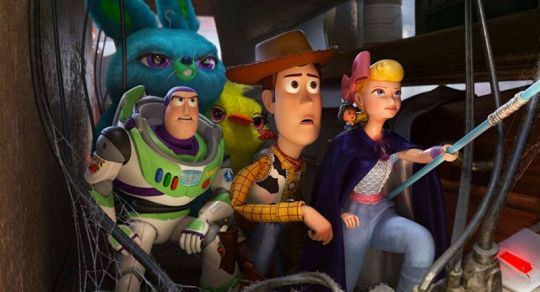
Written by Shawn Eastridge
There’s no need to fret, Pixar fans. Toy Story 4 is good. In fact, it’s better than it has any right to be. Especially when you consider how perfect a conclusion Toy Story 3 was to this story. Once again, Pixar demonstrates their winning blend of humor, heart and family-friendly excitement paired with the standard gorgeous visuals.
All that said, Toy Story 4 is also the first in this series to feel inessential. The thematic territory explored here had already been explored to perfection in the first three films. Despite some great new characters (as well as some old favorites) and some intriguing ideas, the film never reaches the same heights as its predecessors. But while it lacks the freshness of Toy Story 1 and 2 and the emotional gut-punch of 3, Toy Story 4 is still solid entertainment from one of the most reliable studios out there.
This time around, we find Woody, Buzz and the rest of the gang living out their new lives with their new kid Bonnie. Woody’s struggling to find his place in this new environment. He’s no longer the leader and clearly not one of Bonnie’s favorite toys. When Bonnie returns from Kindergarten with ‘Forky,’ a new toy she made out of a spork, some googly eyes and a popsicle stick, Woody takes it upon himself to protect him and ensure he stays by her side.
This becomes complicated as Forky is resistant to being a toy. He knows he’s trash, like, literal trash, and longs to fulfill his true purpose, making a mad dash for the closest waste bin whenever the opportunity presents itself. When Forky escapes during a summer road trip, Woody gives chase and winds up running into his old flame Bo Peep. During his time with her, Woody discovers there may be potential to pursue another, better life. But is he willing to give up his life with Bonnie and his friends to do so?
Does any of this sound familiar? You could pick out many of the plot points from the previous Toy Story films: Woody helping a toy realize it’s a toy while they try to get back to their kid (#1); Woody realizing he has the potential to live another life outside of the one he’s familiar with while his friends try to rescue him (#2); trying to figure out one’s place when the life you’ve known is no longer an option (#3).
There are a few interesting ideas presented here that we haven’t seen before, one of them being that children are essentially gods and can give ‘life’ to toys. But screenwriters Andrew Stanton and Stephany Folsom and director Josh Cooley steer clear of that complex and potentially problematic subject matter. (You can only ponder the nature of existence so much in a family film) Instead, they focus on Woody’s displacement, his feeling that he lacks any purpose in his new life with Bonnie.
Well, kind of.
Honestly, the film can't decide if it's about Woody or Forky. About halfway through, Forky takes a back seat to Woody's story. The writers sort of set up Woody’s conflict at the film’s start and there’s an emotional payoff near the end. Overall though, his character arc feels a bit undercooked resulting in emotional beats that lack the impact they need.
And what about Buzz, Rex, Slinky Dog and the rest of the gang? Well. They’re there. But there isn’t a whole lot for them to do aside from fretting and worrying. The massive ensemble is just too unwieldy and the characters we know and love end up getting left behind. Buzz in particular doesn’t have much to do, and although the screenwriters try desperately to get him involved at any given point, they’re unable to give him much purpose here.
Toy Story 4 also suffers from a general lack of conflict. The villain introduced here, Gabby Gabby (voiced by Christina Hendricks), is well-developed. Her ventriloquist dummy henchmen are the stuff of genuine nightmares. But, for reasons I won’t spoil, the threat she presents ends up being more of a minor one. I appreciate the creative team’s attempts to present a different kind of villain, but it robs the film of much of its suspense.
But while Toy Story 4 may be lacking in the storytelling department, the creative team fills the gaps with superb visuals and colorful new characters. First we’ve got Keanu Reeves’ Duke Caboom, a Canadian motorcyclist and daredevil, who provides nothing but pure joy whenever he’s on-screen. We’ve also got Bunny and Ducky, voiced by none other than Keegan-Michael Key and Jordan Peele. These characters keep things feeling fresh and fun, providing some of the film’s biggest laughs. (They also feel like fodder for a potential Disney+ series down the line.)
Look, I get it. Toy Story 1-3 are masterpieces. It was only a matter of time before we’d get to one that was just plain ‘good.’ And I get that these films are money in the bank for Pixar. (You’ve gotta pay the bills somehow.) Perhaps Toy Story 4’s biggest accomplishment is that despite being a clear money-making venture, it feels like a genuine, heartfelt storytelling effort as opposed to a cynical cash cow.
But maybe, just maybe, it’s time to really really close the book on this film series. You got away with it this time, Pixar, but it’s time to let Toy Story go. As this wonderful film series has taught us: nothing is meant to last.
And that’s okay.
#Toy Story#Toy Story 4#Woody#Buzz Lightyear#Tom Hanks#Tim Allen#Pixar#Animation#Film Review#Movie review#Forky
29 notes
·
View notes
Text
John Wick: Chapter 3 - Parabellum - Film Review

Written by Shawn Eastridge
Five years ago I heard about an action movie in which Keanu Reeves played a master assassin seeking revenge on the men who killed his puppy. I thought it was a joke. Turns out, it was one of the best action films of the decade. Two years later, John Wick Chapter 2 rolled around, taking things to the next level with more amazing action sequences and an impressive amount of worldbuilding. While it wasn’t as fresh as its predecessor, it still got the job done and ended with a thrilling cliffhanger that left me excited for more.
Now here we are with John Wick Chapter 3: Parabellum, which might very well be the best of the bunch. Everything great about the first two films is amplified and refined to perfection. At a little over two hours, Chapter 3 never out-stays its welcome thanks to outstanding choreography and a wide variety of settings and scenarios for the brutal carnage on display. There’s plenty of breathing room to allow for this world’s finer details to shine through. These moments provide some relief, but for the most part the film is relentless in its divvying out of one adrenaline rush of an action sequence after another.
One of the great joys of cinema is when an action scene is executed with flawless finesse. Chapter 3 gives us multiple action set pieces that would serve as the showstopper for any one action film. It’s an embarrassment of riches. Even more impressive I rarely felt fatigued. Each fight is carefully choreographed and staged based on John’s surroundings, bring something fresh to the table each time. That this freshness is maintained through the entire runtime is impressive to say the least.
Part of the key to the film’s success is Reeves himself. Reprising this role for the third time, Reeves exudes an aura of effortless cool and world-weariness tinged with bits of humor and an undercurrent of tragedy that makes him so endearing. His willingness to throw himself into these stunts, to fully devote himself to the action only helps. Note how many fight sequences play out in wide shots and long takes so you can clearly see Reeves is the one doing the fighting.
Returning cast members Ian McShane, Lance Reddick and Laurence Fishburne are a delight, as are the new additions. First and foremost, Mark Dacascos is an absolute treat to watch. He makes for one of the most lovable baddies this franchise has offered up as of yet. Anjelica Huston shows up, lending her elegant gravitas to a small but effective role. Also joining the fray is Halle Berry, and to say she kicks ass in this movie is an understatement. She holds her own, matching Reeves’ penchant for amazing stuntwork. And hey, wait a second, is that Yayan Ruhian and Cecep Arif Rahman from The Raid films? Yes, PLEASE.
Of course, another vital ingredient to the film’s success is Chad Stahelski’s masterful direction. The guy made his feature debut with the first John Wick and his talents have only grown more refined which each entry. His direction on Chapter 3 feels even more confident and assured. He knows exactly how to frame these fight scenes to ensure they’re at their most effective and he trusts his insanely talented stunt team to deliver the goods. Boy oh boy, do they. Aiding the visual appeal is returning cinematographer Dan Laustsen (The Shape of Water, Crimson Peak), whose sensibilities create a neon, comic book style world that feels both fantastical and totally grounded. He outdoes himself here.
Some might complain about the lack of stakes. I get it. John Wick is, after all, seemingly unkillable. But he doesn’t earn his victories without immense struggle. You feel every bone-crunching blow and that effort, plus the brilliant choreography and staging, kept me engaged. And perhaps the most pleasant surprise? This franchise doesn’t show any signs of stopping. Thank God for that. Maybe someday these films will start to overstay their welcome, but that day seems a long way off. I, for one, am ready for another go. Long live Mr. Wick.
#John Wick#Keanu Reeves#John Wick Chapter 3#Parabellum#Halle Berry#Mark Dacascos#Chad Stahelski#Film Review#Film Appreciation#Films#Movies#The Raid
8 notes
·
View notes
Text
Avengers: Endgame Film Review
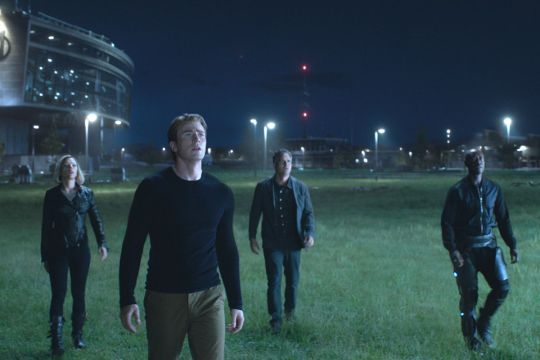
Written by Shawn Eastridge Has it really been 11 years since the first Iron Man? The Dark Knight might have taken all the credit that year for revolutionizing the superhero genre, but Iron Man’s legacy has proved just as important. While other films in Phase One hobbled somewhere between decent and mediocre, Joss Whedon’s first Avengers exceeded any and all expectations. To this day, it stands as one of the greatest superhero films ever, and it paved the way for the remainder of Marvel’s Cinematic Universe.
Over the course of the past decade, the MCU has seen its fair share of highs (Anything directed by the Russos), lows (Thor movies not directed by Taika Waititi) and everything in between. But through it all, Marvel Studios has maintained a consistent level of quality, conjuring up box office numbers that made Warner Bros SO JEALOUS they ruined Superman in the attempt to catch up. (Hey, WB: I’m still available to help get you on the right track with the Man of Steel. Call me.)
But now, twenty-two movies later, it’s all come down to this. We’re in the Endgame now, the long-awaited BIG FINALE to Marvel’s Cinematic Universe.
Let’s be real, though - we all know this isn’t really the finale. The MCU will chug on and on forever. In fact, we’ve even got another Marvel movie right around the corner. (That would be July’s Spider-Man: Far From Home) And while that knowledge does dilute Endgame’s overall effectiveness - can anyone ever stay dead in the realm of comic books - it seems foolish to recognize Endgame as anything other than a monumental success.
Seriously, this ‘conclusion’ to the MCU’s recently dubbed ‘Infinity Saga’ satisfies on nearly every level, fulfilling arcs set up in prior films and providing proper send offs for characters we’ve come to know and love over the past decade. Instead of collapsing under the weight of its ongoing 22-film arc, the Russo Brothers, along with screenwriting duo Stephen McFeely and Christopher Markus, rise to the challenge and then some, wrapping things up with style, grace and a surprising amount of emotion. That is perhaps the most pleasant surprise: Endgame is genuinely touching in the way it thoughtfully concludes this ongoing story arc. You may find yourself dabbing the corners of your eyes more frequently than expected through the film’s brisk three-hour runtime.
This isn’t all to say that Endgame is without its fair share of flaws - and there are plenty that I’ll get into during the spoiler section of this review - but honestly, the nitpicks feel so minor when compared to all the things that work. Marvel Studios hasn’t just raised the bar for superhero filmmaking and ‘big finales’ in general. They’ve obliterated it.
There. That’s my non-spoiler reaction. MASSIVE SPOILERS await you ahead. So, do yourself a favor: if you haven’t seen Avengers: Endgame already, see it. Immediately. If you have any fondness for any of the films in this massive franchise, there’s no way you’ll be disappointed. Once you’re in the know, come back and check out the rest of this review.
Sound good? Okay. Let’s push forward.
. . . . .
Where Infinity War brought the comic book action early and often, Endgame’s opening moments are more meditative and somber. Our heroes have just faced a crushing loss. They’re still reeling from the devastation of Thanos’s infamous Finger-Snap Heard ‘round the Universe. Nothing will ever be the same.
After staging an effectively heart-wrenching opening scene, giving us a brief glimpse at Hawkeye’s family life before his wife and kids fade into ash, the Russos keep the mood low-key and mournful for the duration of the film’s first act. Then we get one of Endgame’s earliest and best twists: within the film’s first twenty minutes, the Avengers find Thanos and discover he’s destroyed the Infinity Stones to prevent anyone from undoing his monstrous deed. In an empty gesture, Thor chops off the purple dude’s head. It’s a brilliant way to kick things off, throwing the audience for a loop and suggesting an ‘anything goes’ vibe to keep us on the edge of our seats.
The story jumps ahead five years(!!) to find our heroes scattered and broken, attempting to mend together the pieces in a world still devastated by its new reality. I loved that the Russos let us wallow in our heroes’ misery for a bit. You really get a sense of the loss they’ve experienced, that the entire world has experienced. These scenes offer some wonderful character beats and conversations, something that has always elevated Marvel above the rest of the pack.
Scott Lang, a.k.a. Ant-Man, escapes the Quantum Realm (you saw Ant-Man and the Wasp, right?) to discover a significantly altered world. But he brings a message of hope with him: the duration of time he experienced in the Quantum Realm was only 5 hours, suggesting the potential for time travel. Maybe they can find a way to fix the devastation Thanos has wrought by traveling back in time?
P.S. Can I just take a moment to talk about how much I love Paul Rudd in this movie? Ant-Man has been on the periphery of the MCU’s big events and to see him take on such a big role in this movie was a huge thrill.
This glimmer of hope inspires the band to get back together and it’s genuinely surprising where some of them have ended up. Bruce Banner has finally made peace with his meaner, greener side, resulting in Professor Hulk, a version of the character that maintains Banner’s intelligence and personality. Thor never overcame his grief and has spent the past five years descending into drunken slobbery and gaining a significant amount of weight in the process. This provides one of the film’s best sight gags. Plus, it’s maintained throughout! Kudos to you, Russos!
And then we have Mr. Tony Stark himself, the key to figuring out how to make time travel work. But he’s moved on. He and Pepper have an adorable daughter. He has absolutely zero desire to lose what he has. Ultimately the realization that he can save the lives of countless billions - including one surrogate son Peter Parker - drives him to support the cause.
Endgame’s 2nd act centers around the newly reassembled Avengers time-traveling into the past to gather the Infinity Stones, bring them to their future and use them to ‘un-snap’ their fallen comrades. These sequences are fun and light on their feet. They’re especially effective in lieu of the grim opening scenes.
Here’s the thing, though: As much as I love this portion of the film and the way the time travel stuff is handled, I couldn’t help feeling there was a general lack of consequence to everything that happened during this sequence. Even when things skew from the team’s set plan, it doesn’t feel like a significant snag or an insurmountable obstacle. These moments are treated as minor annoyances before our heroes carry on with a new solution, nary breaking their strides or a sweat in the process.
It’s all fun in a Back to the Future Part II kind of way, but it’s treated more as an extended comedy bit than anything else, and to a certain extent, this robs Endgame of some level of suspense. Plus, it’s time travel. Once you throw time travel into the mix, all bets are off, and I couldn’t help shaking that feeling. After all, what’s to stop them from using this plot device again and again in the future, consequences be damned?
At the very least, the wackiness of the time travel sequence is balanced with some great character beats. I loved Thor’s tender moment with his mom. I loved Captain America vs. Captain America. I loved that Tony gets a sincere heart to heart with his dad, offering some much-needed closure. Robert Downey Jr. has never been anything less than wonderful in this role, but his performance in Endgame might take the cake. Honestly, everyone brings their A-game to the table and these moments ground the sequence, keeping it from getting too bonkers.
This sequence is also balanced with a genuinely tragic moment: Black Widow sacrifices herself to get the Soul Stone. I don’t know why this scene has been stirring up some people, because here’s the thing: this moment works perfectly. Natasha (Black Widow) and Clint (Hawkeye) travel to Vormir to obtain the Soul Stone. As established in Infinity War, the only way to obtain said stone is to sacrifice the thing you love most. Clint’s willing to take the plunge. He’s become a monster in the five years since his family’s disappearance (but an awesome, katana-wielding monster) and he doesn’t feel he deserves to see them again. Natasha knows this isn’t true and she’s willing to sacrifice herself to ensure Clint gets his happy ending. After all, he saved her all those years ago. It’s time to return the favor. It’s heartbreaking, but it feels right and Scarlett Johansson and Jeremy Renner sell every minute.
The plan is a success, but it's not without its snags. Past Thanos ends up getting involved when past Nebula tunes into future Nebula’s wifi and begins broadcasting everything future Nebula has seen, including the Avengers’ time travel plan. Thanos gets worked up into a tizzy and he and past Nebula devise a plan to get him into the Avengers’ future so he can ensure everyone snapped out of existence stays snapped out of existence. Also, why not wipe out everyone else in the process just for good measure? Because that’s what big, angry, purple maniacs do. Don’t question it.
Is it a bit weird that the Thanos the Avengers face isn’t the same Thanos so carefully fleshed out in Infinity War? Yeah, a little bit. To be honest, it makes things feel kind of impersonal. This Thanos feels more like the mysterious being teased in dozens of MCU post-credits sequence than the layered, thoughtful villain of the previous film. It’s a bit of a bummer, but it is what it is.
Ultimately, my biggest gripe with Endgame is the same gripe caused by Infinity War’s conclusion. We already knew the disintegrated heroes were going to come back for their obligatory sequels. Their arrival during Endgame’s epic battle to end all epic battles feels inevitable more than surprising.
And, look, let me be clear: Endgame’s climax is the ultimate superhero big battle you’ve been dreaming of since Nick Fury first name-dropped the ‘Avengers Initiative.’ I went nuts with the best of them when all our heroes returned from the abyss for this ultimate showdown, so understand my next criticism comes from a place of love. Once all the heroes show up, the stakes disappear. I didn’t have any doubt the Avengers would win. As a result, the climax is robbed of its suspense. It’s basically fan service to the nth degree, which again, I’d like to emphasize I was totally cool with. It just prevents the battle from conjuring up any emotional depth.
This isn’t The Return of the King. It's not the Battle of Hogwarts or the Death Star trench run or even the first Avengers' Battle for New York. It’s a big, flashy special effects extravaganza overflowing with crowd-pleasing beats, but lacking in genuine (here’s this word again) consequence. Again, I want to emphasize that I loved every second of it, but there’s a significant lack of loss during these scenes. Ultimately, Tony Stark sacrifices himself to save the universe and it’s absolutely BRILLIANT and heart-wrenching, but no one else seems in danger. Iron Man dies so that dozens of franchises can live on.
The remaining twenty minutes or so of Endgame are low key. We witness Tony’s emotional funeral, torches are passed (go, Sam Wilson, go!) and some unexpected-slash-exciting team-ups are teased (Fat Thor with the Guardians of the Galaxy? I am SO in.) But it’s during these quiet scenes that the Russos skillfully remind us what has always mattered the most: the characters. And I’m not going to lie, it’s difficult not to get choked up when Steve Rogers, a man who has sacrificed so much for the greater good, finally gets his happy ending, dancing the day away with the love of his life.
Big finales don’t get much more enjoyable or fulfilling than this. Marvel’s Cinematic Universe will go on and on and on. Inevitably, its quality will wane and fade, but we can rest easy knowing that the heroes that kicked everything off got the send-off they deserved. It might not be perfect, but it’s pretty damn great. Most importantly, it’s satisfying.
With the Infinity Saga, Marvel Studios has accomplished something extraordinary. They’ve touched countless millions across the globe without compromising the artistic quality of this multi-billion dollar franchise. We can rage on and on about Disney’s domination and how everything is just a corporate product and blah, blah, blah, but we’d be ignoring the fact that they got to where they are because they honored their source material and went out of their way to give the fans something special.
So to Kevin Feige and the entire team at Marvel Studios, cast, crew, writers, bean pushers, etc., I’d like to say thank you. You’ve earned every record-breaking penny. We love you 3000.
Now can someone please un-cancel Daredevil?? Come on!!
#Avengers#Endgame#Avengers Endgame#Marvel#Marvel Cinematic Universe#MCU#Marvel Studios#Iron Man#Captain America#Thanos#Black Widow#Hawkeye#Hulk#Thor#Spider-Man#Black Panther#film review#films#Russo Brothers#Kevin Feige#Ant-Man#Paul Rudd#Chris Hemsworth#Chris Evans#Guardians of the Galaxy#Robert Downey Jr#Jeremy Renner#Scarlett Johansson#Tom Holland#Chris Pratt
32 notes
·
View notes
Text
Reckoning Film Review | 2019 Atlanta Film Festival
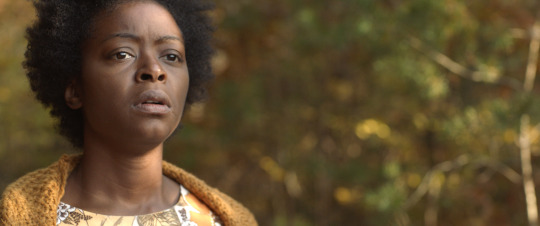
Written by Shawn Eastridge
How many expletives would it take to convince you to see Reckoning, the outstanding feature debut from writing/directing duo Lane and Ruckus Skye? I’ll try to restrain myself in the interest of not offending anyone, but, seriously, holy ****. The film made its debut at the 2019 Atlanta Film Festival, where it (not surprisingly) walked away with the award for Best Georgia Feature. It’s currently making the festival rounds, but keep it on your radar. You’ll want to check it out the moment it’s available to watch.
Reckoning is a riveting, edge-of-your-seat thriller, anchored by a revelatory lead performance from Danielle Deadwyler. Deadwyler plays Lemon, a hard-working mother and wife who lives on an Appalachian plantation isolated from the modern world. She and her son tend to chores around the house while Lemon’s husband goes out to perform various tasks for the plantation’s most powerful families. When Lemon’s husband disappears while fulfilling a debt to one of the oldest family’s cruel matriarch, it’s up to Lemon to settle the debt, or else risk her life and the life of her son.
I’ll avoid saying more - the less you know going into it, the better. Just know that Reckoning is an instant genre classic, sure to make waves once people start to see it. At less than 90 minutes, it’s about as efficient a storytelling effort as you’re likely to see, and is filled to the brim with thrills and excitement that’ll leave your pulse pounding and your head spinning. The Skyes take their time setting the stage and establishing this unique world. With the aid of Sherman Johnson’s gorgeous cinematography, they offer just enough details to provide the backdrop without tipping into information overload. Once the plot kicks off, the suspense rarely lets up.
The technique on display is unquestionably outstanding, as is the amazing ensemble cast the Skyes have assembled, which includes the likes of Catherine Dyer, Adam Boyer, Jayson Warner Smith and Brad Carter, who also composed Reckoning’s stunning score. But it’s Deadwyler’s show here and her passionate turn as Lemon will stick with you long after the credits roll. She is nothing short of miraculous in the role, equal parts fierce and empathetic. It’s one of the best performances I’ve seen so far this year.
That goes for the film as a whole too: this is one of 2019’s very best. Keep your eyes peeled for its official release. You don’t want to miss it. I can’t wait to see what else Lane and Ruckus Skye have up their sleeves. Reckoning premiered at the 2019 Atlanta Film Festival. To learn more about the festival, visit atlantafilmfestival.com.
#atlff#atlanta film festival#reckoning#Ruckus and Lane Skye#Danielle Deadwyler#2019#film#review#movie
1 note
·
View note